
Consumer Reports posted its results of the most reliable cars, and though there were slight changes at the top, foreign brands Lexus, Mazda, and Toyota led the field. The three were the leading brands in the last survey, too, but this time Lexus leapfrogged the others into the top spot.
To identify the most and least reliable car brands, 24/7 Wall St. reviewed Consumer Reports’ predicted reliability rankings. Car brands were ranked on a scale of zero, the least reliable, to 100, the most. Predicted reliability scores were based on survey responses from Consumer Reports members. Only brands with sufficient data on two or more models were considered.
Asian carmakers scored the highest, with an average of 62. European brands scored considerably lower but were just ahead of American automakers, 44 to 42.
The consumer advocacy nonprofit publication said that by category, cars — such as sedans, wagons, and coupes — lead as the most reliable, with an average predicted reliability score of 57, followed by SUVs, pickups, and minivans. (These are the safest new cars for 2021.)
Among the brands that gained the most ground in the latest ranking were the Mini (up 13 spots to 10th place), Infiniti (rising six places to fourth place), and Cadillac (gaining six spots to rank 16th).
Not all the brands had good news. Ram plunged 12 spots to the 21st most-reliable brand. GMC tumbled five spots to rank 22nd on the list, and Jeep slid five positions to 26.
Lexus got the top spot because all of its models have average or better reliability, according to Consumer Reports. The brand was buoyed by the ongoing success of its GX SUV, which tied with the Chevrolet Trailblazer as the most reliable vehicle.
The most reliable U.S. brand is Buick at No. 5, boosted by its Envision model, which heads the luxury compact SUV category. (These are the longest lasting cars on the road.)
Electric, compact hybrids, and plug-in cars, including the Toyota Prius and Honda Insight, scored above average overall reliability for all models. However, all-electric SUVs graded below average for overall reliability, according to Consumer Reports. Survey takers reported more problems with electronics and power equipment in the vehicle than the electric drivetrain.
Click here to see the most and least reliable car brands
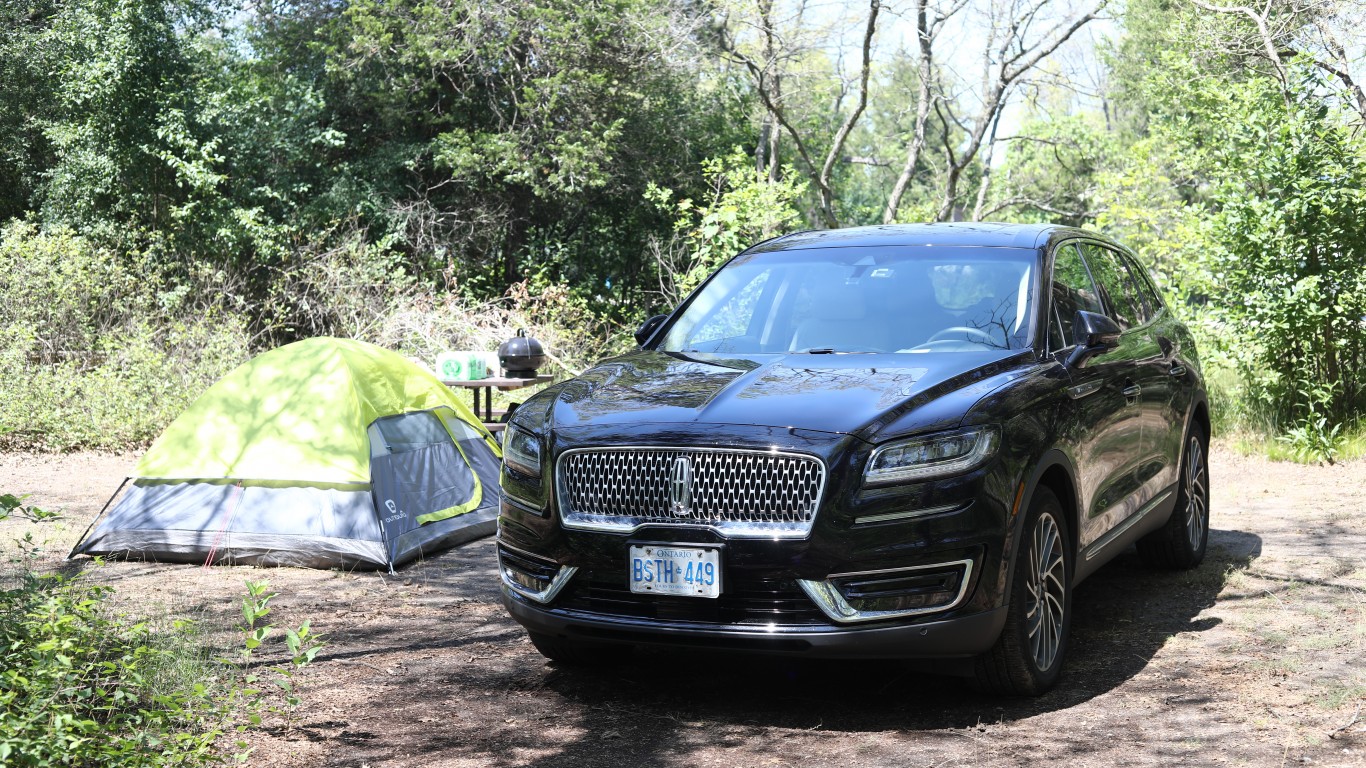
28. Lincoln
> Predicted reliability score: 18-out-of-100
> Change in rank from prior survey: Unchanged
[in-text-ad]
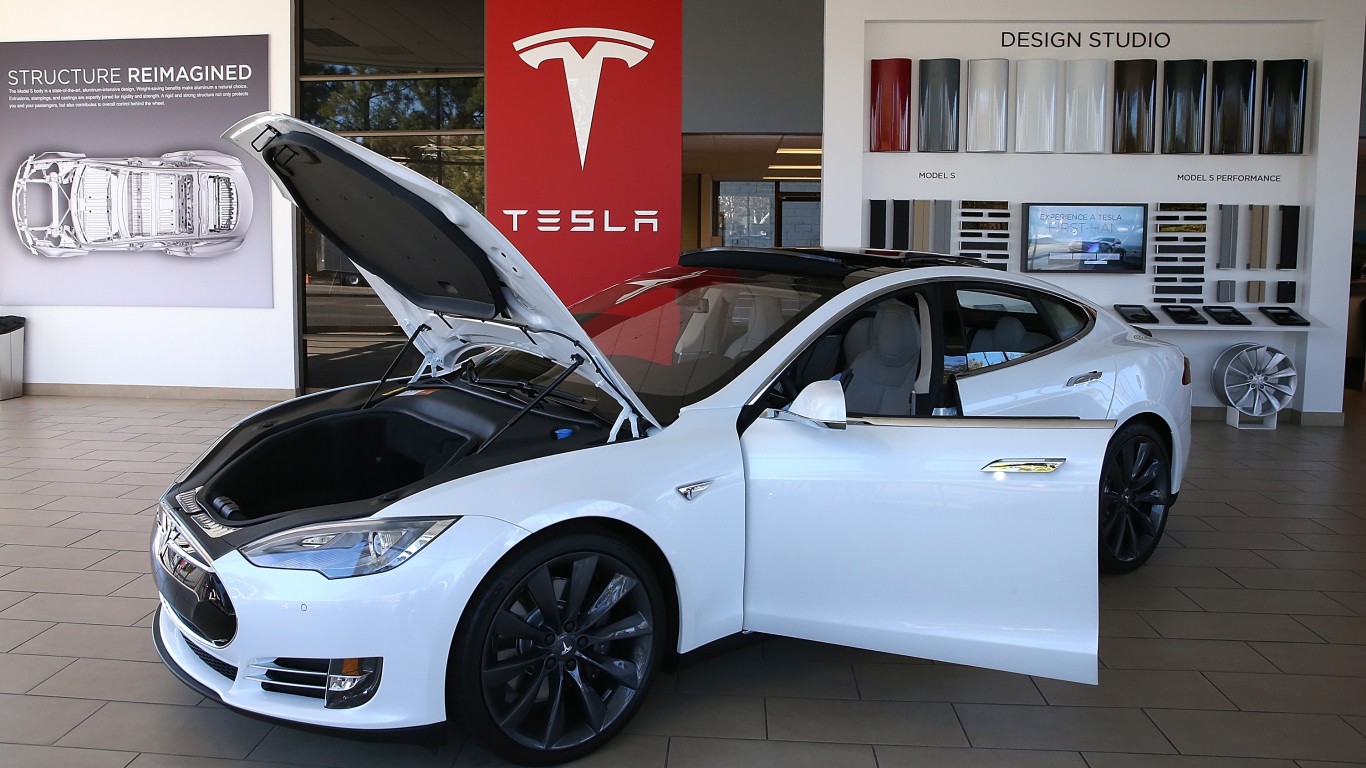
27. Tesla
> Predicted reliability score: 25-out-of-100
> Change in rank from prior survey: Unchanged
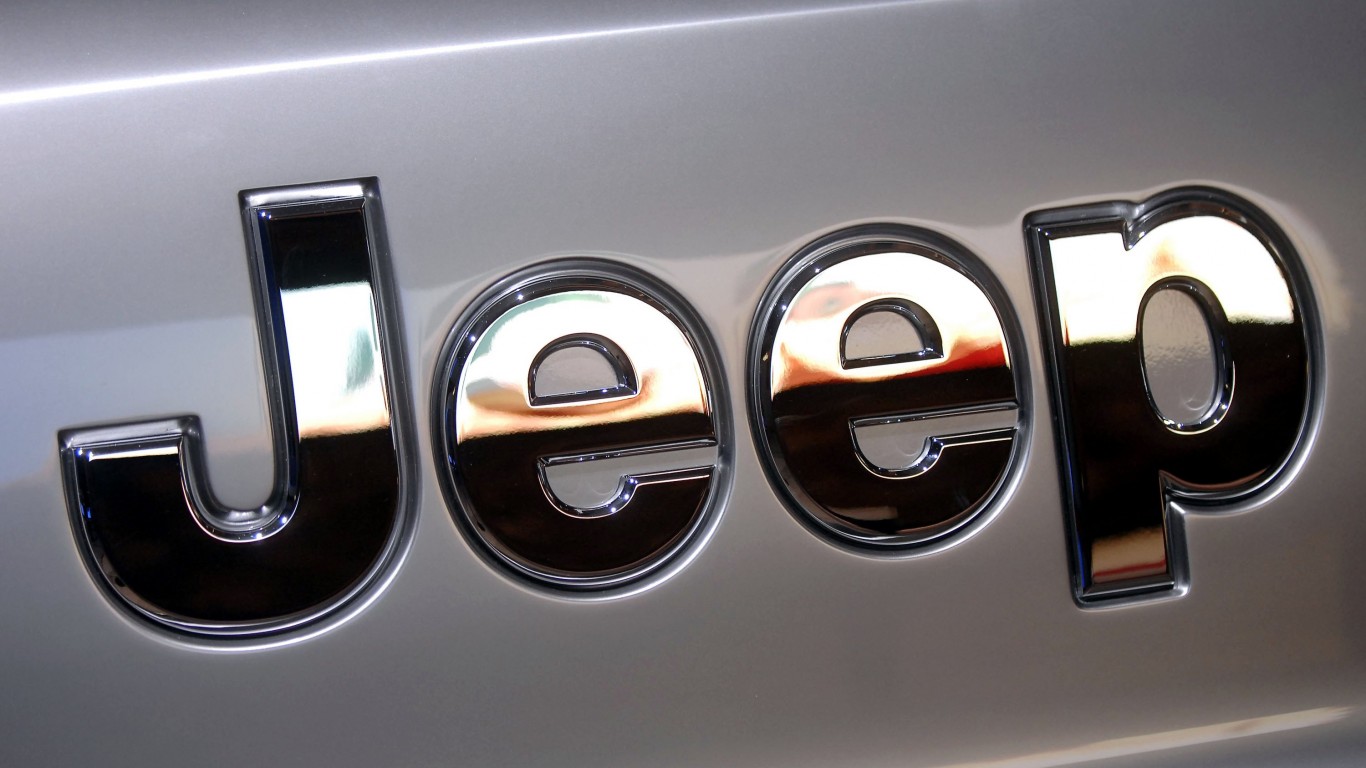
26. Jeep
> Predicted reliability score: 26-out-of-100
> Change in rank from prior survey: -5 spots
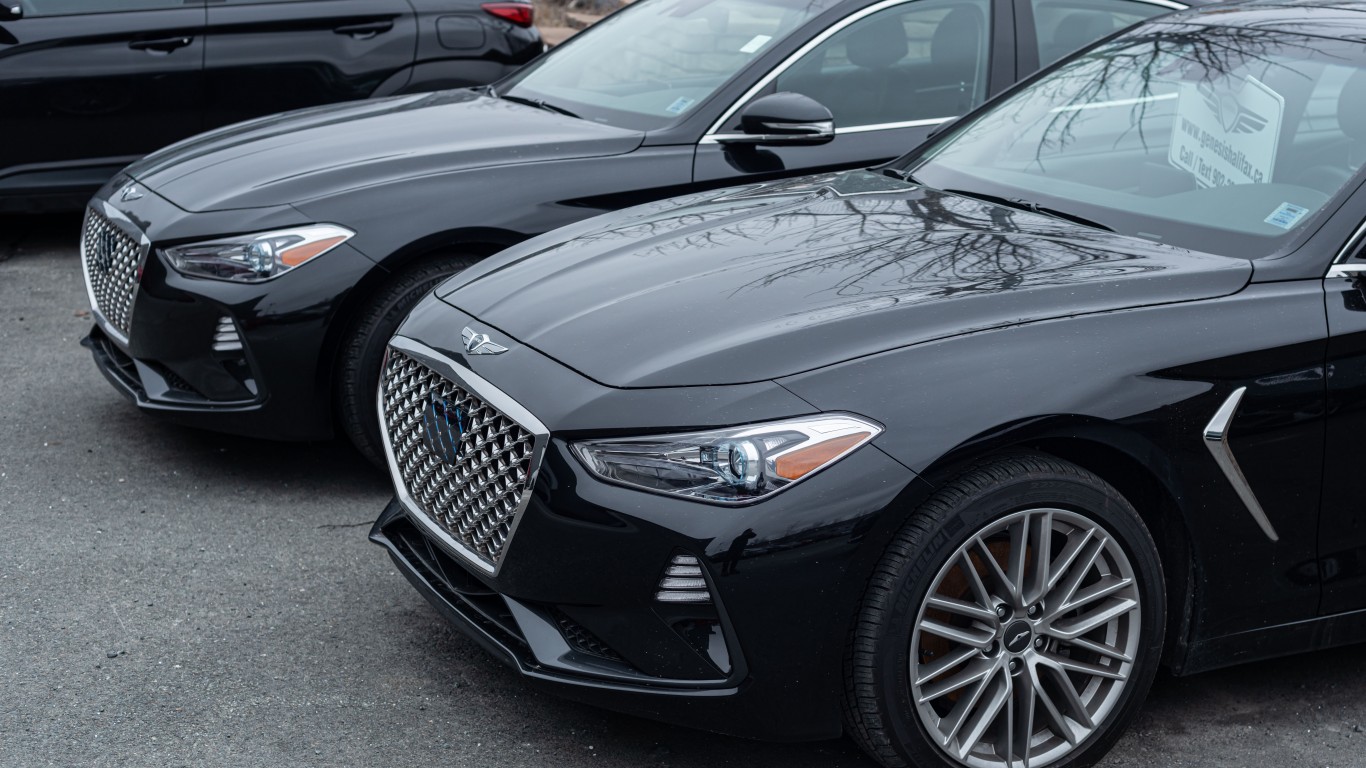
25. Genesis
> Predicted reliability score: 30-out-of-100
> Change in rank from prior survey: Not previously ranked
[in-text-ad-2]

24. Volkswagen
> Predicted reliability score: 31-out-of-100
> Change in rank from prior survey: +1 spot
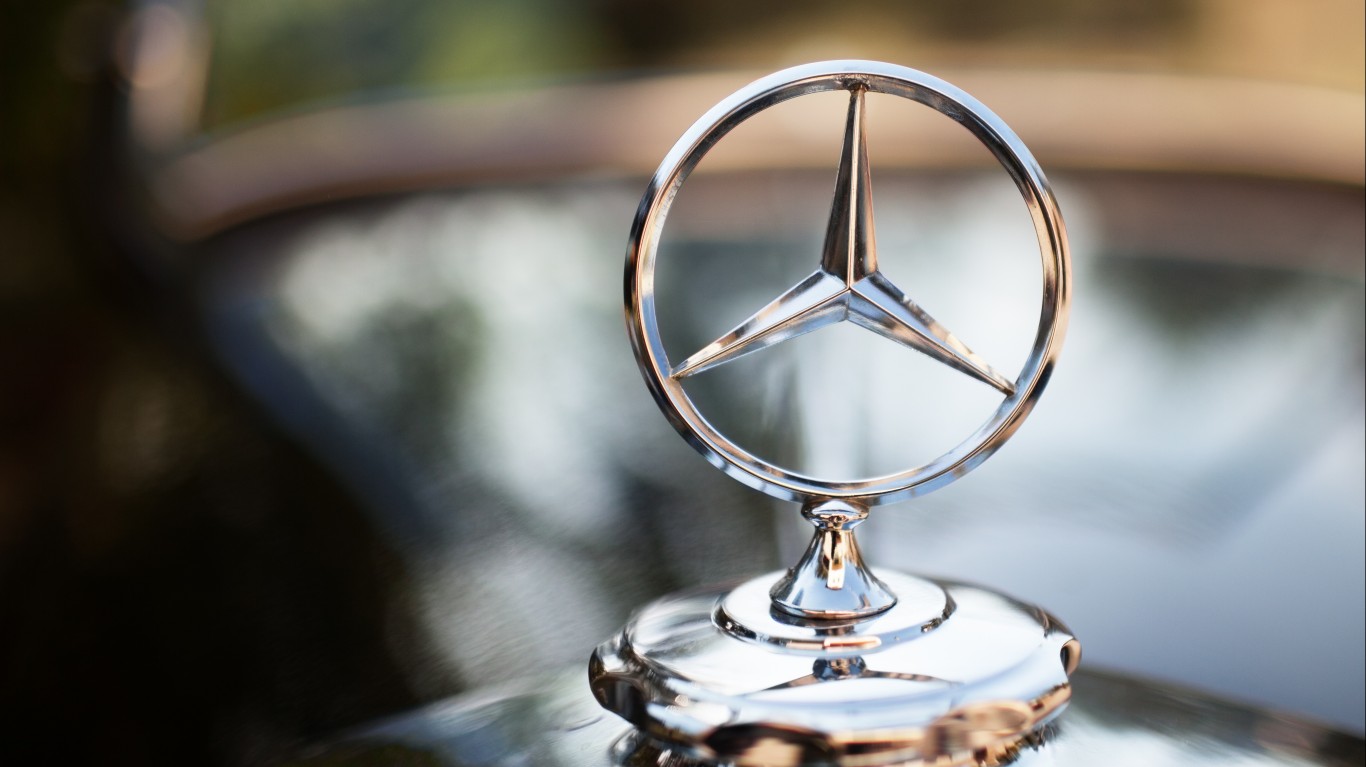
23. Mercedes-Benz
> Predicted reliability score: 34-out-of-100
> Change in rank from prior survey: -2 spots
[in-text-ad]

22. GMC
> Predicted reliability score: 37-out-of-100
> Change in rank from prior survey: -5 spots
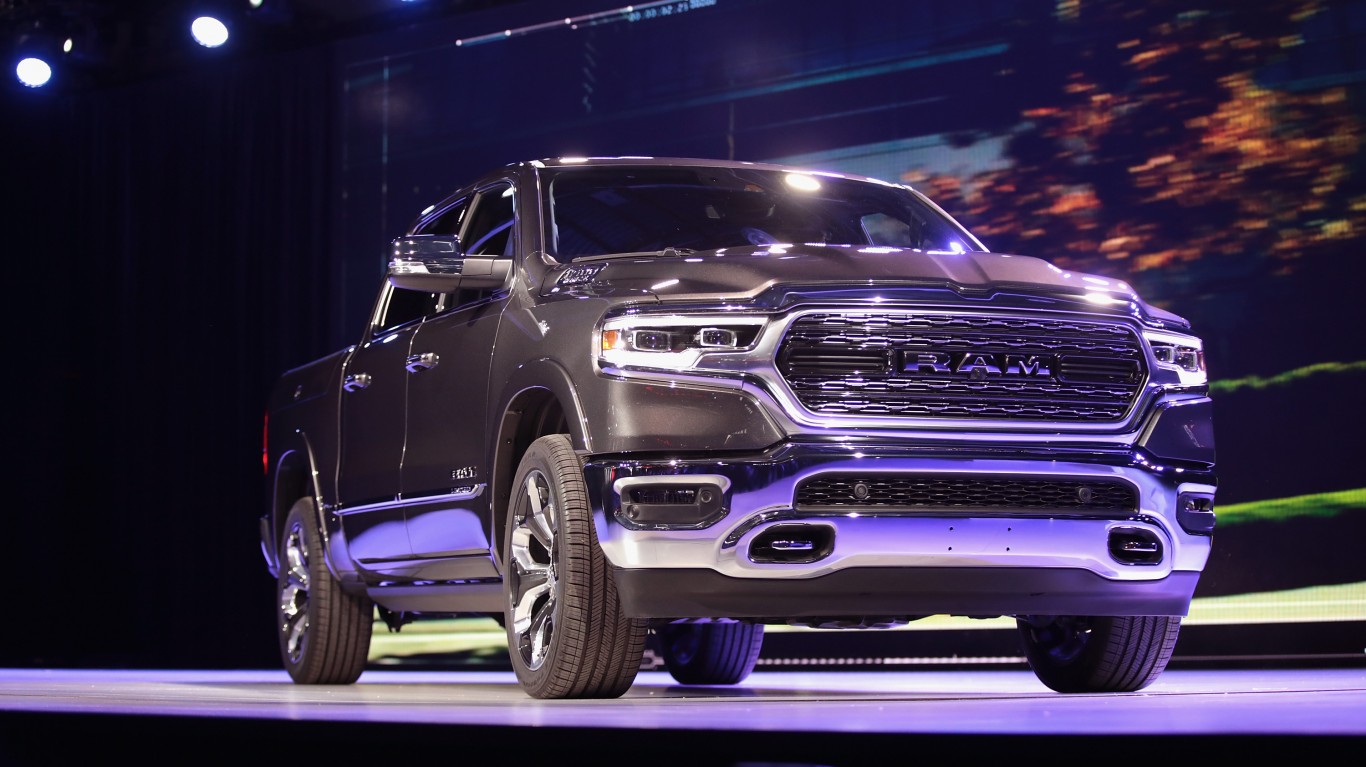
21. Ram
> Predicted reliability score: 40-out-of-100
> Change in rank from prior survey: -12 spots
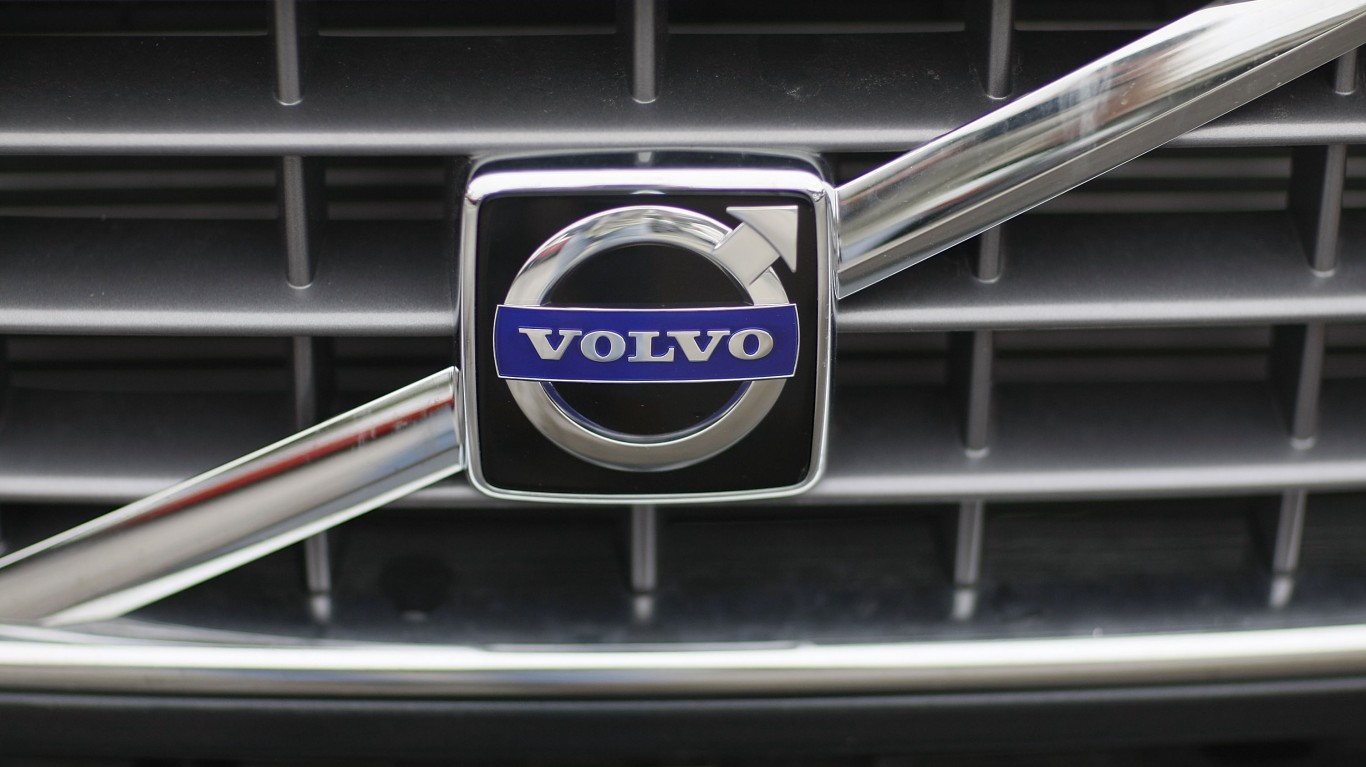
20. Volvo
> Predicted reliability score: 42-out-of-100
> Change in rank from prior survey: -1 spot
[in-text-ad-2]
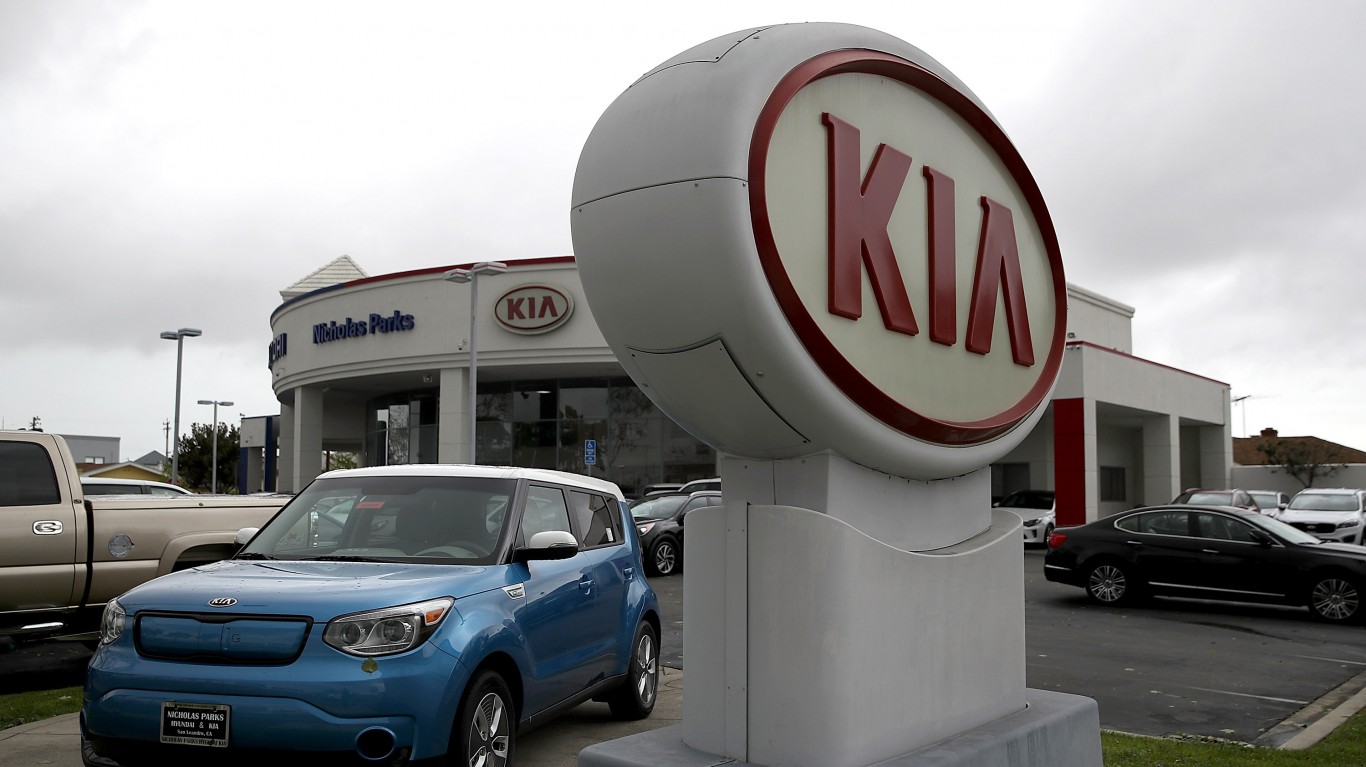
19. Kia
> Predicted reliability score: 43-out-of-100
> Change in rank from prior survey: -3 spots
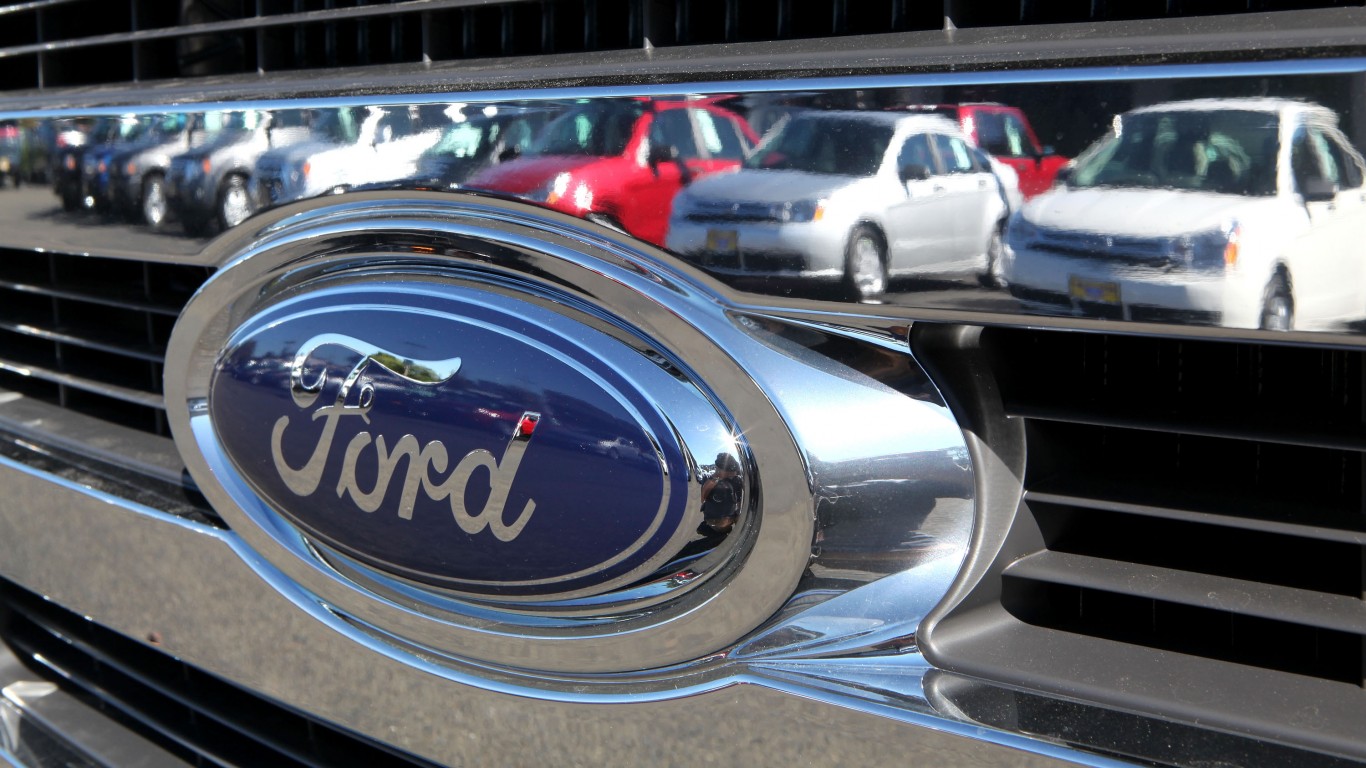
18. Ford
> Predicted reliability score: 44-out-of-100
> Change in rank from prior survey: +5 spots
[in-text-ad]
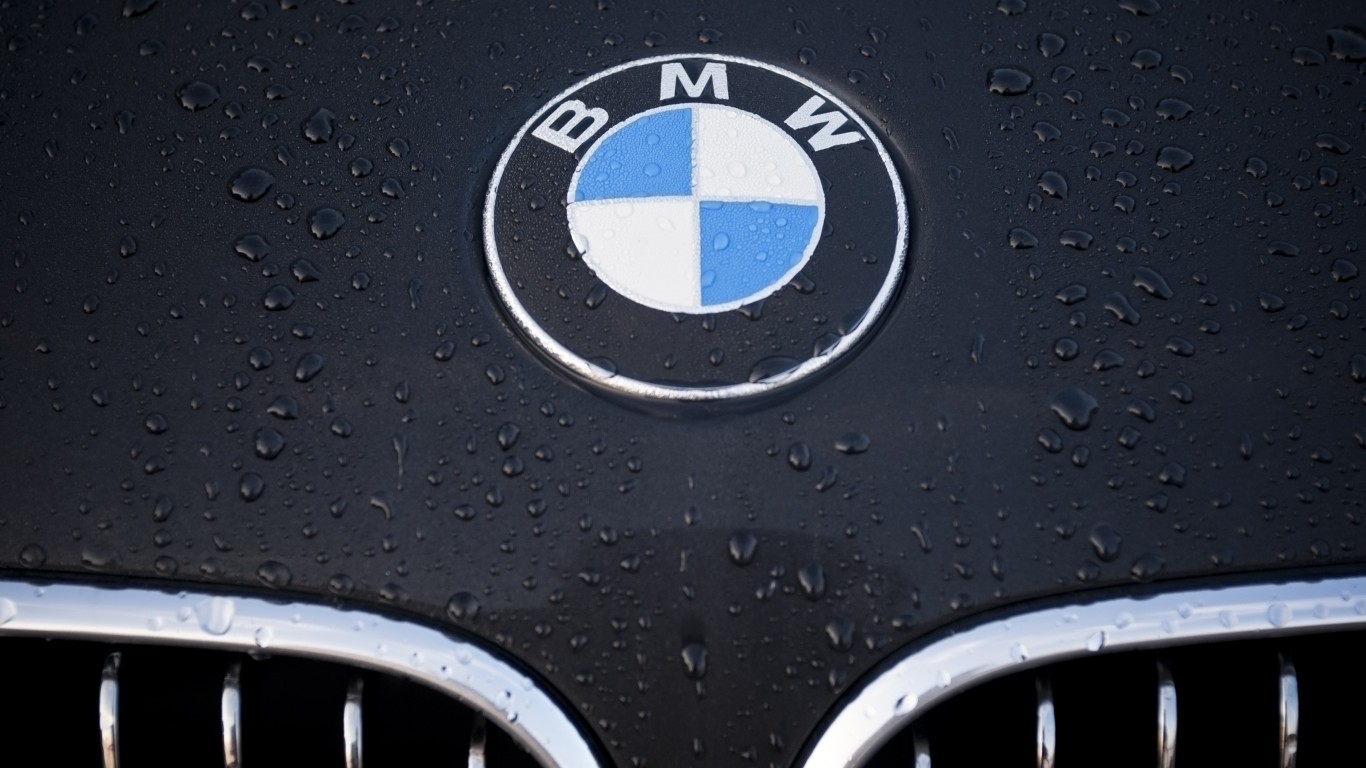
17. BMW
> Predicted reliability score: 45-out-of-100
> Change in rank from prior survey: -4 spots
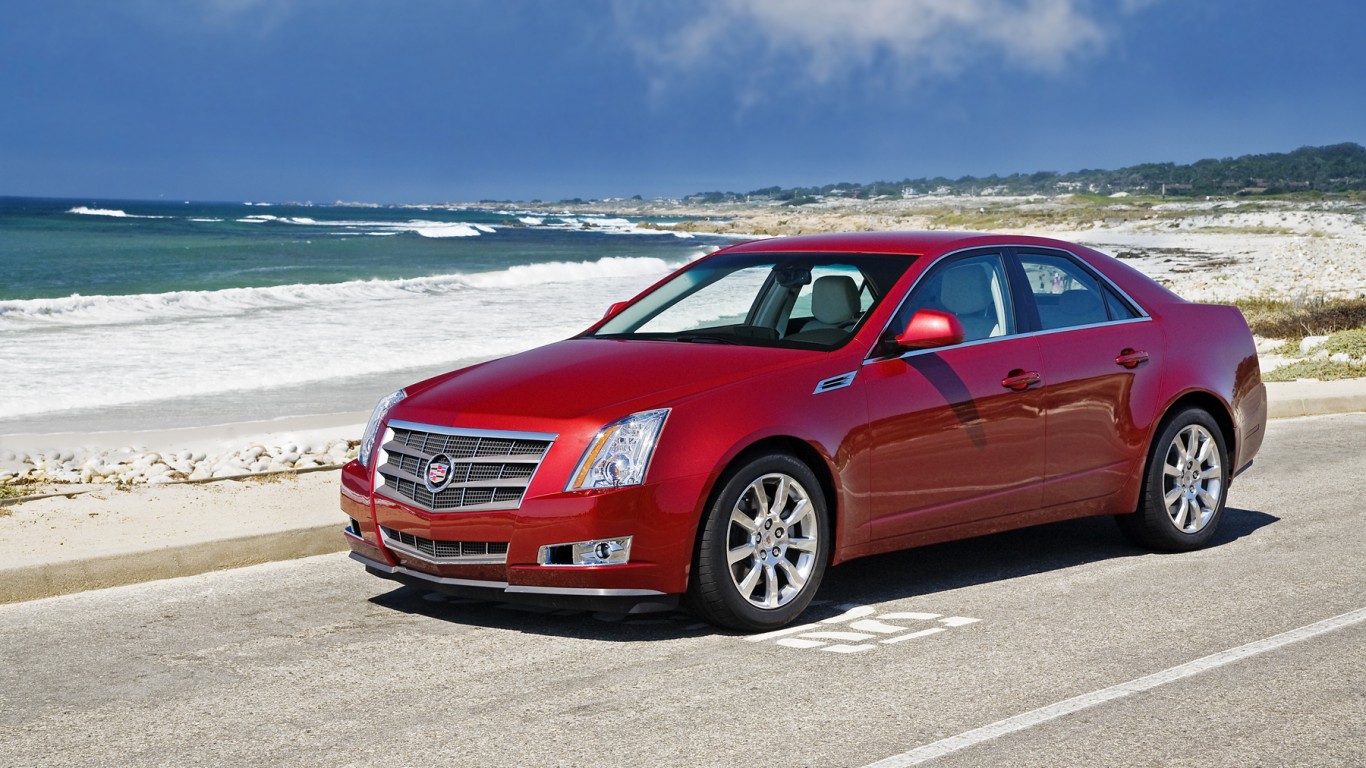
16. Cadillac
> Predicted reliability score: 47-out-of-100
> Change in rank from prior survey: +6 spots
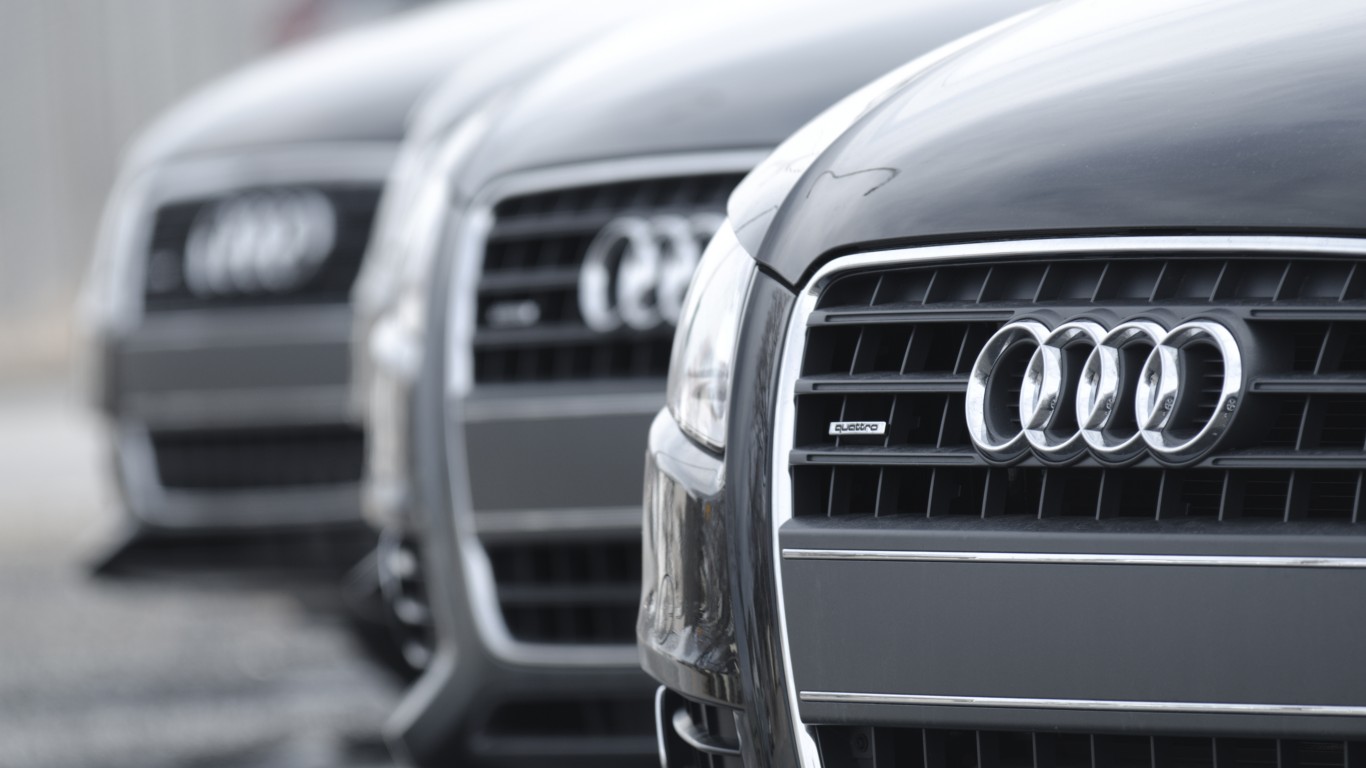
15. Audi
> Predicted reliability score: 47-out-of-100
> Change in rank from prior survey: Unchanged
[in-text-ad-2]
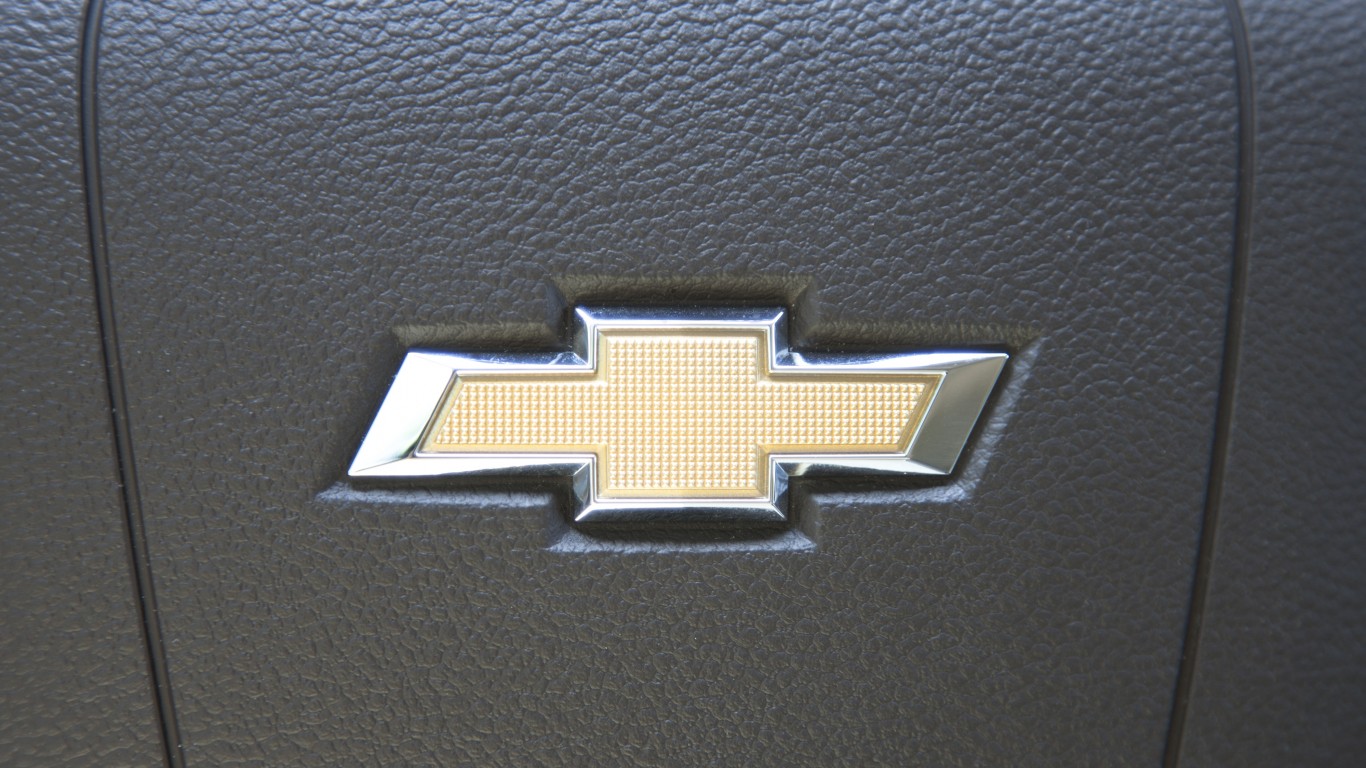
14. Chevrolet
> Predicted reliability score: 48-out-of-100
> Change in rank from prior survey: +4 spots
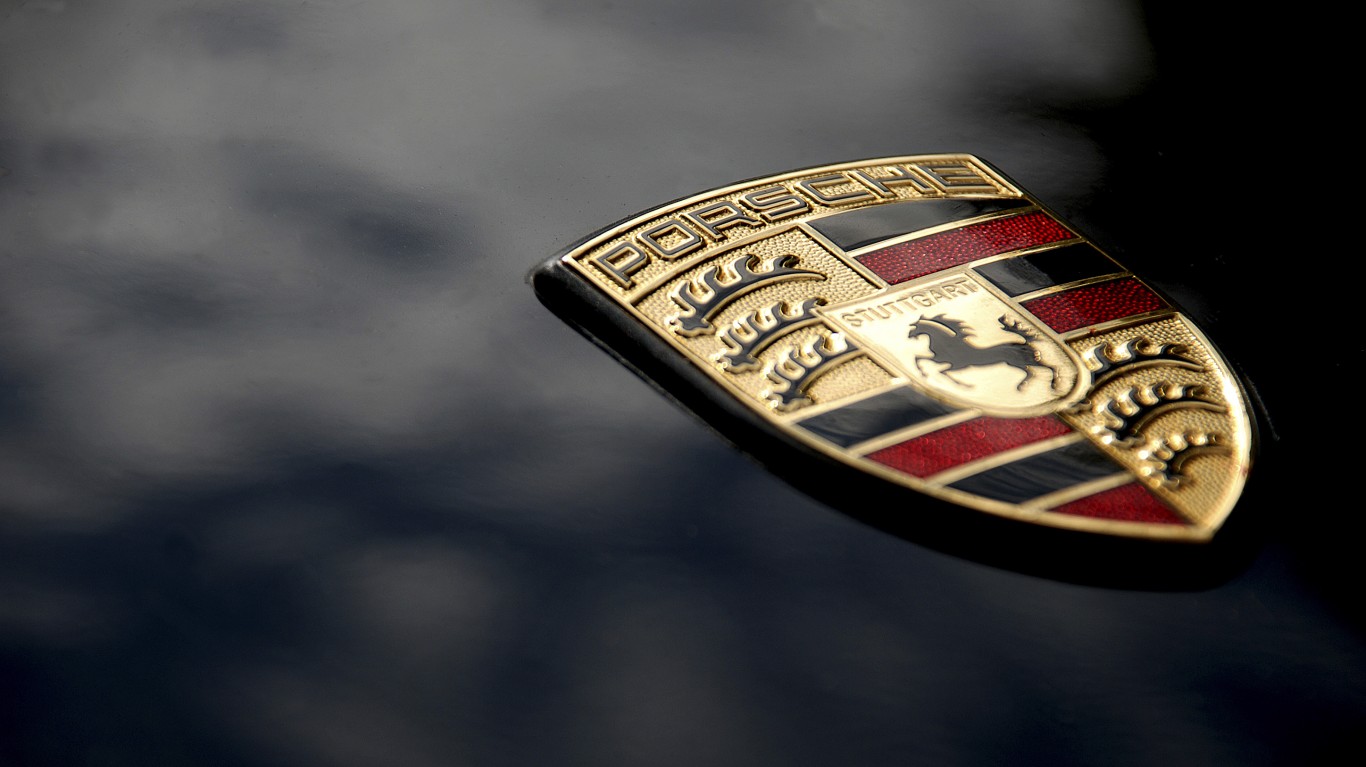
13. Porsche
> Predicted reliability score: 52-out-of-100
> Change in rank from prior survey: -2 spots
[in-text-ad]
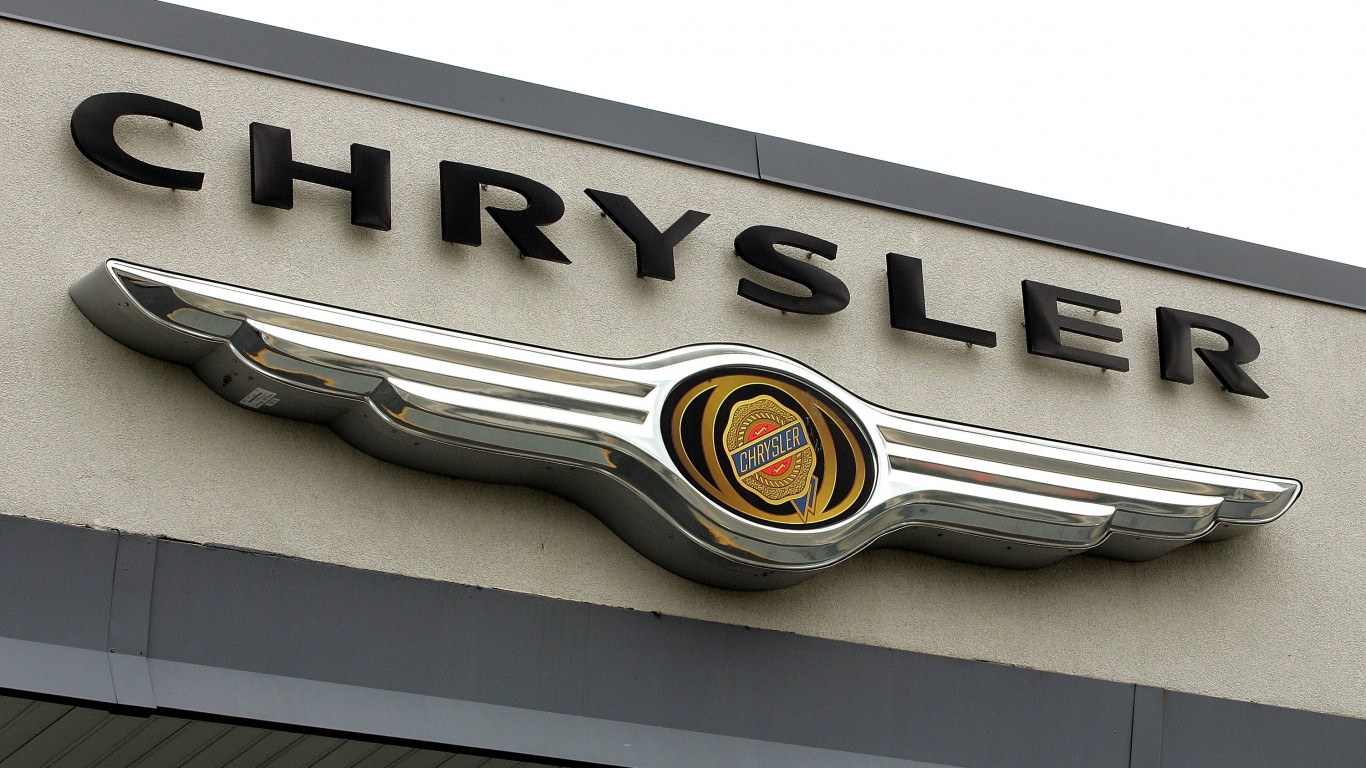
12. Chrysler
> Predicted reliability score: 54-out-of-100
> Change in rank from prior survey: Not previously ranked
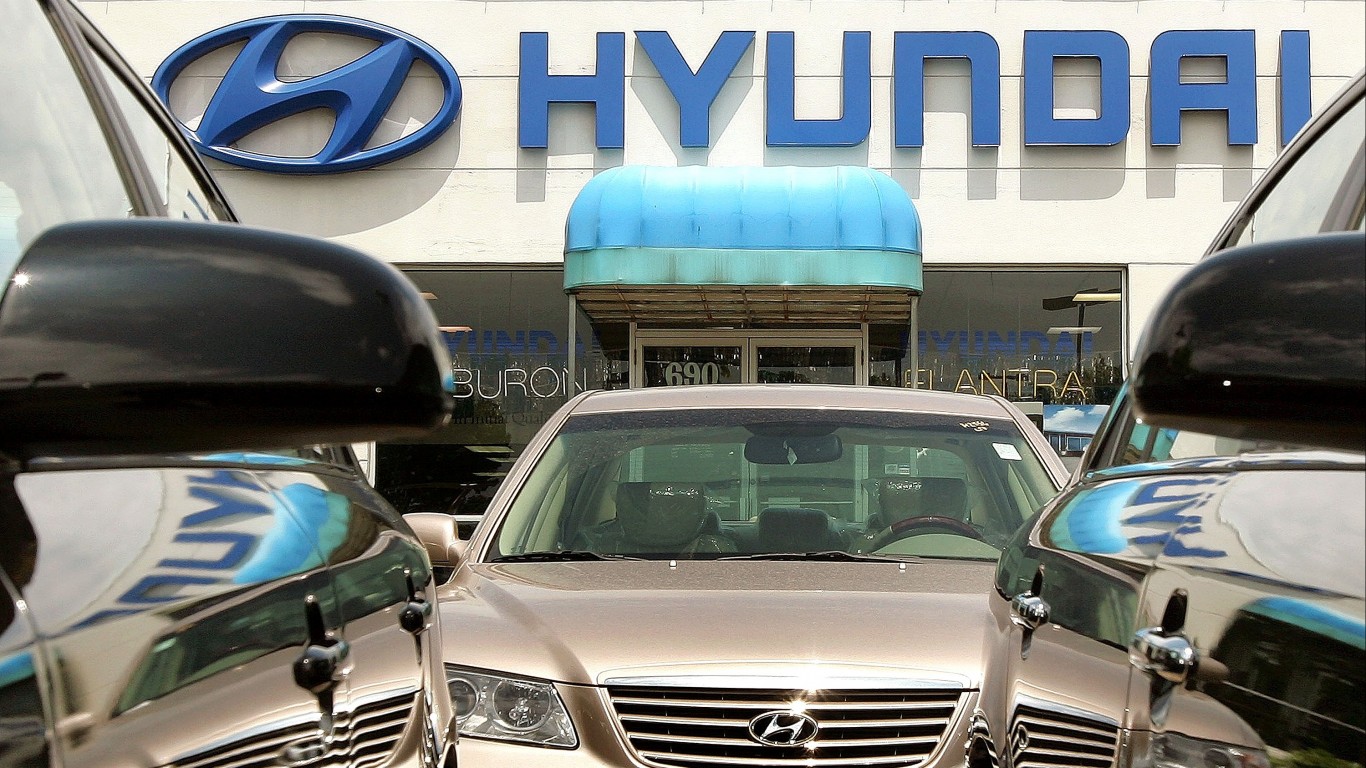
11. Hyundai
> Predicted reliability score: 56-out-of-100
> Change in rank from prior survey: -4 spots
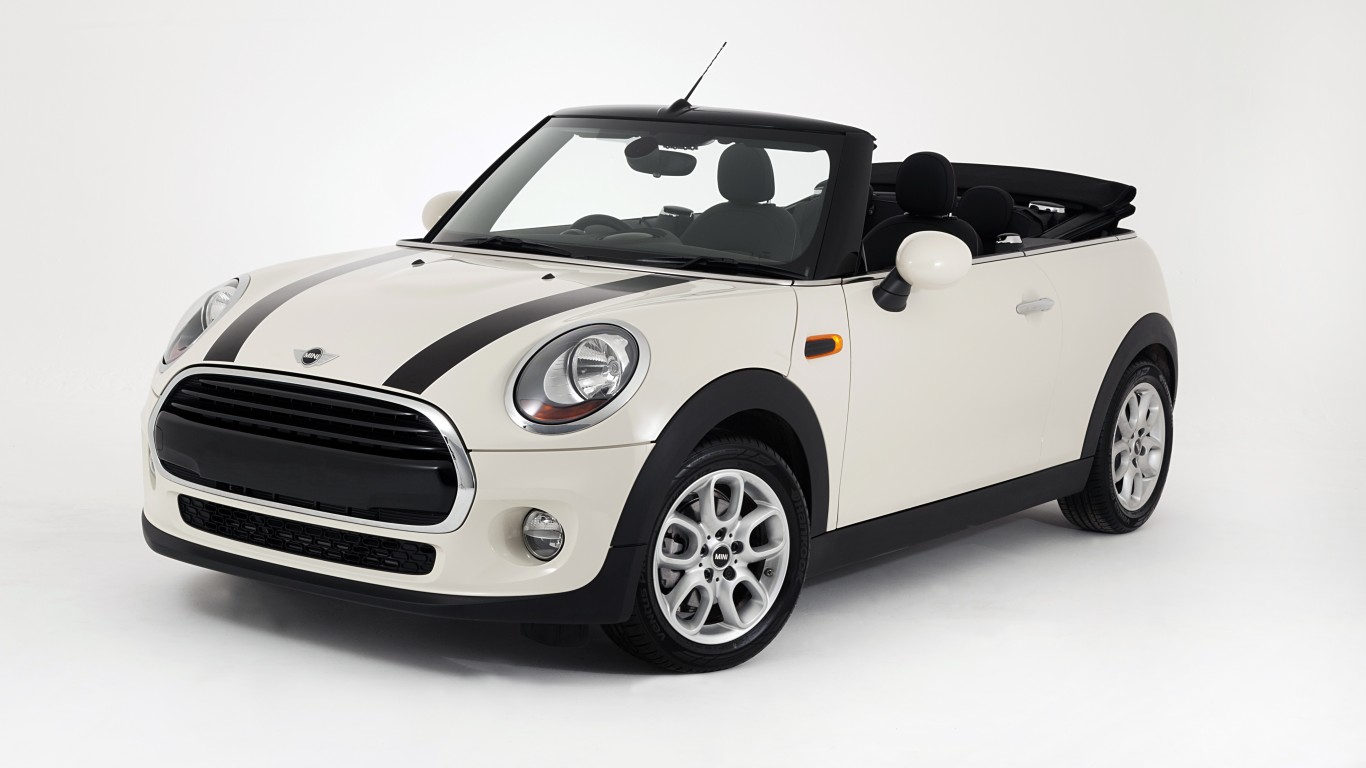
10. Mini
> Predicted reliability score: 60-out-of-100
> Change in rank from prior survey: +13 spots
[in-text-ad-2]
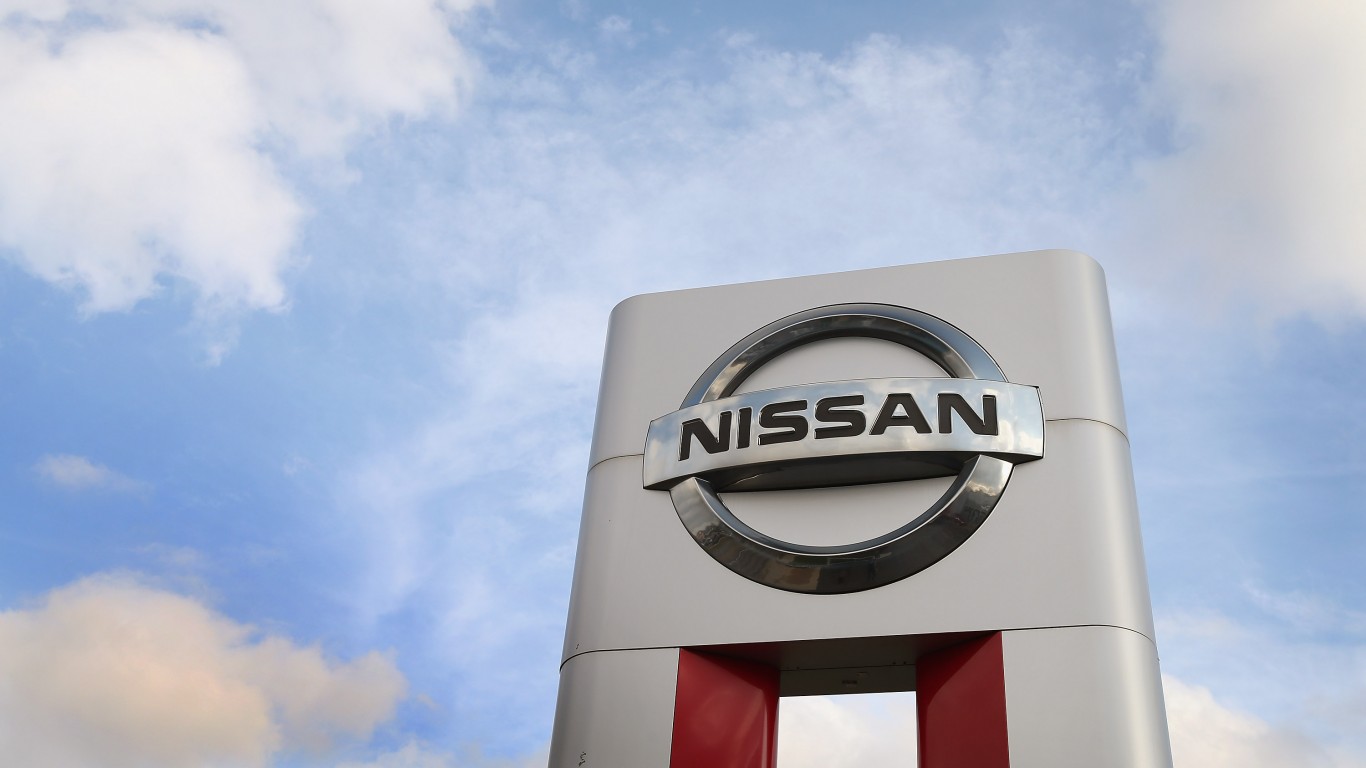
9. Nissan
> Predicted reliability score: 63-out-of-100
> Change in rank from prior survey: +4 spots
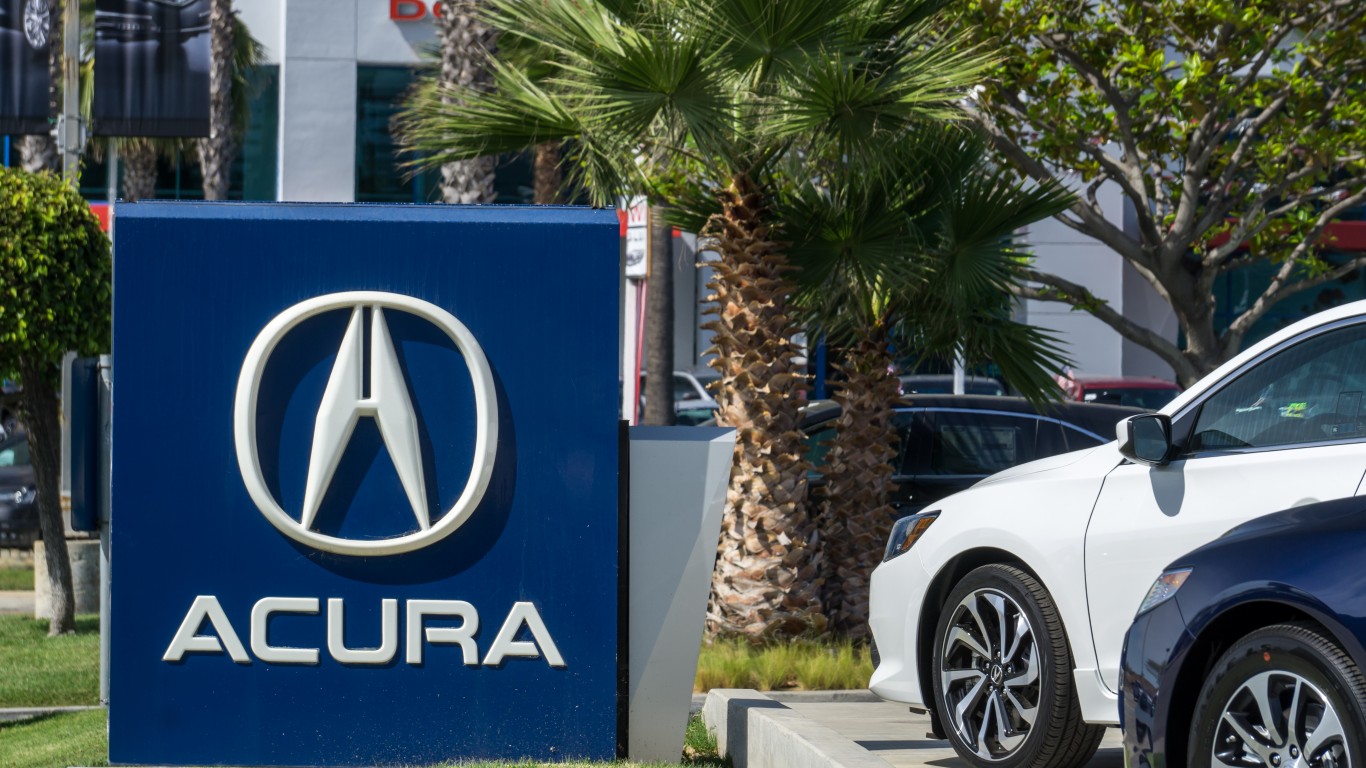
8. Acura
> Predicted reliability score: 64-out-of-100
> Change in rank from prior survey: Not previously ranked
[in-text-ad]

7. Subaru
> Predicted reliability score: 66-out-of-100
> Change in rank from prior survey: +1 spot

6. Honda
> Predicted reliability score: 66-out-of-100
> Change in rank from prior survey: -1 spot
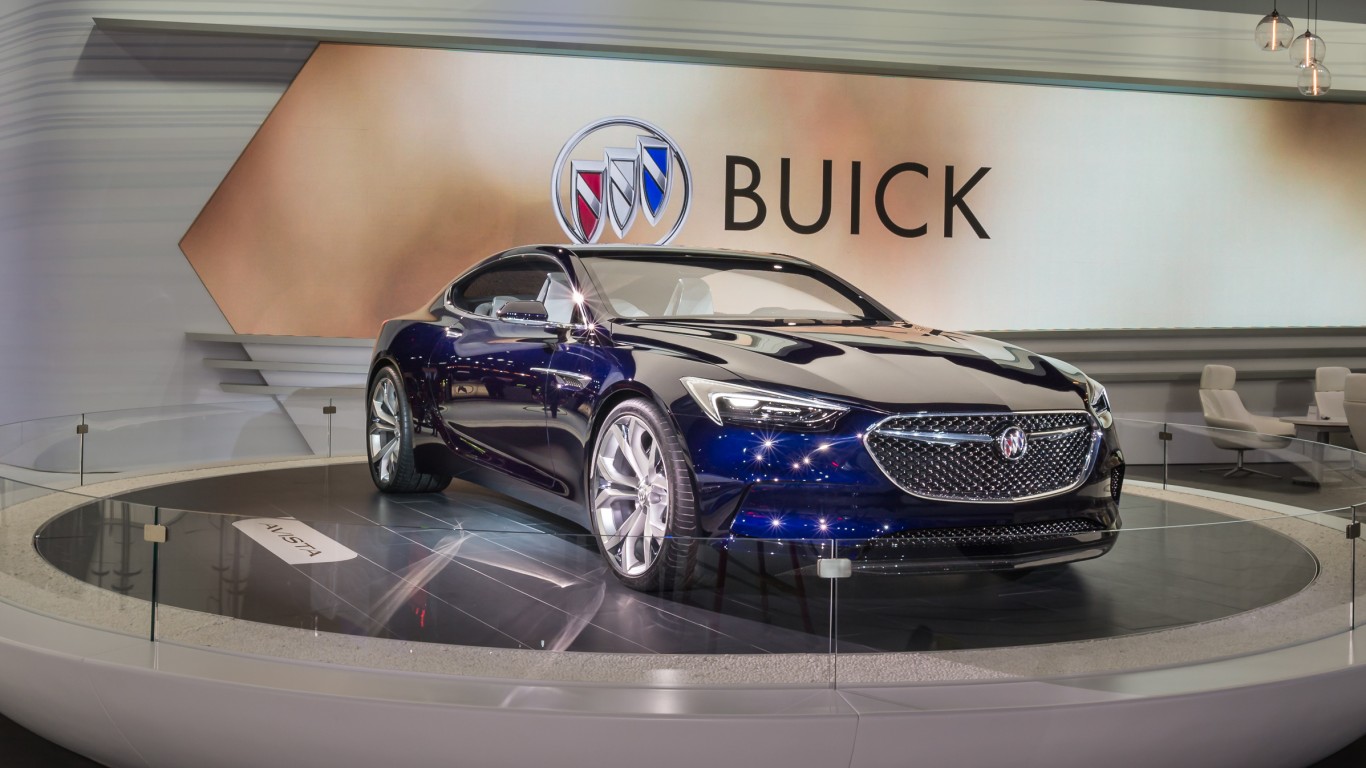
5. Buick
> Predicted reliability score: 66-out-of-100
> Change in rank from prior survey: -1 spot
[in-text-ad-2]

4. Infiniti
> Predicted reliability score: 69-out-of-100
> Change in rank from prior survey: +6 spots
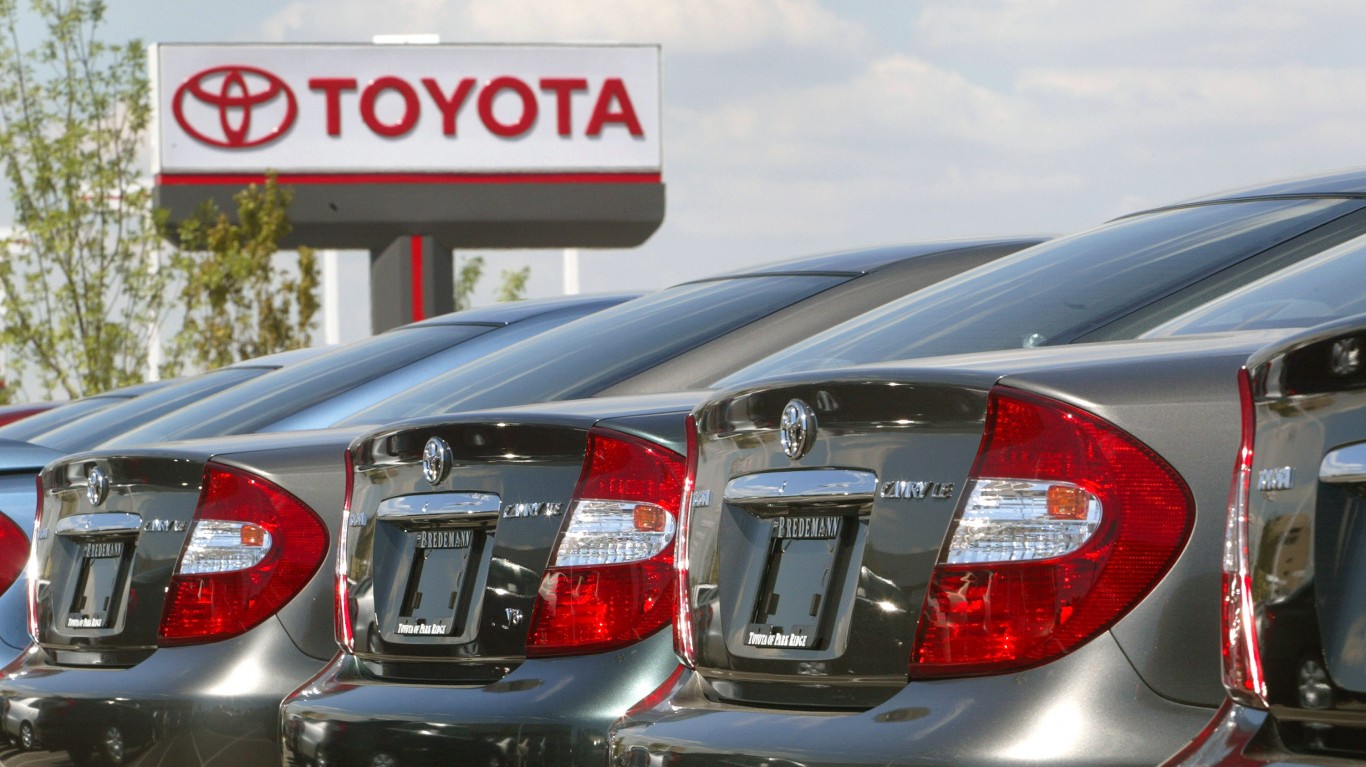
3. Toyota
> Predicted reliability score: 71-out-of-100
> Change in rank from prior survey: -1 spot
[in-text-ad]
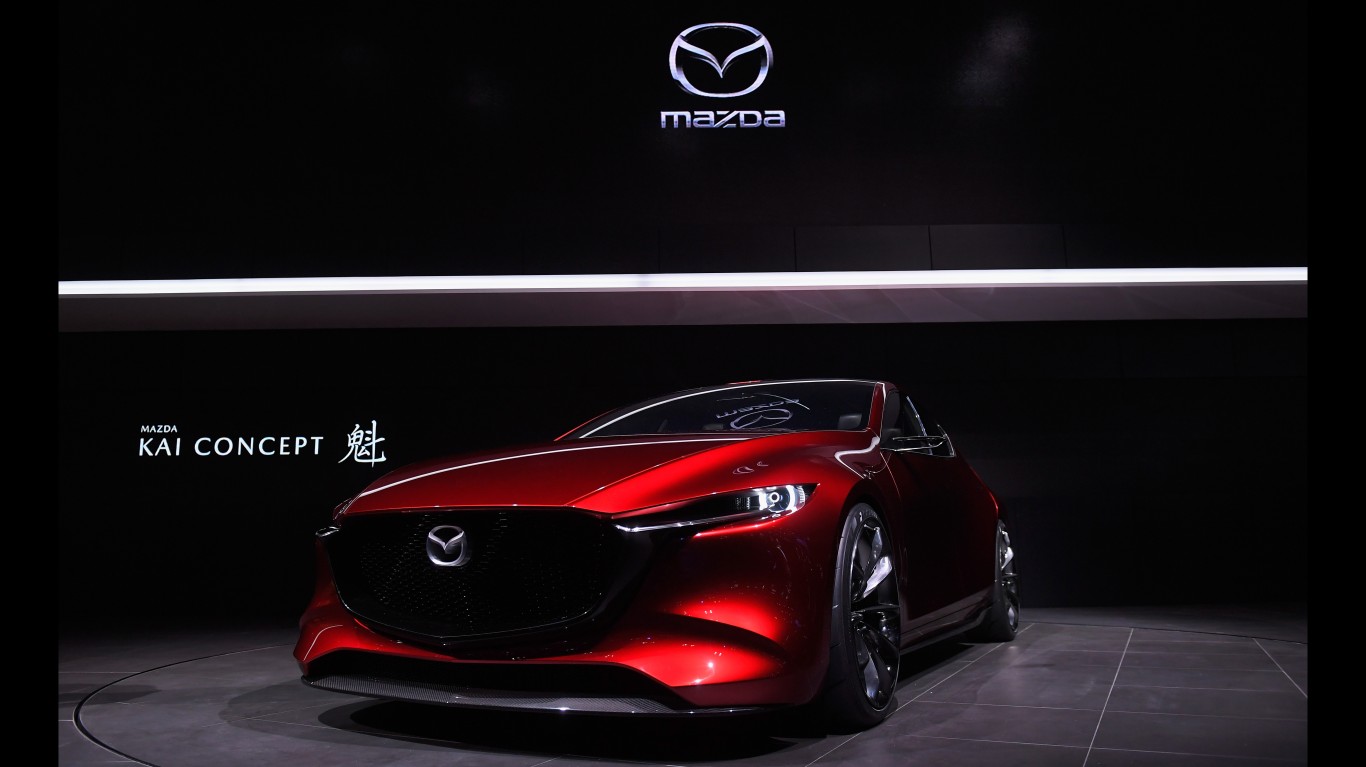
2. Mazda
> Predicted reliability score: 75-out-of-100
> Change in rank from prior survey: -1 spot
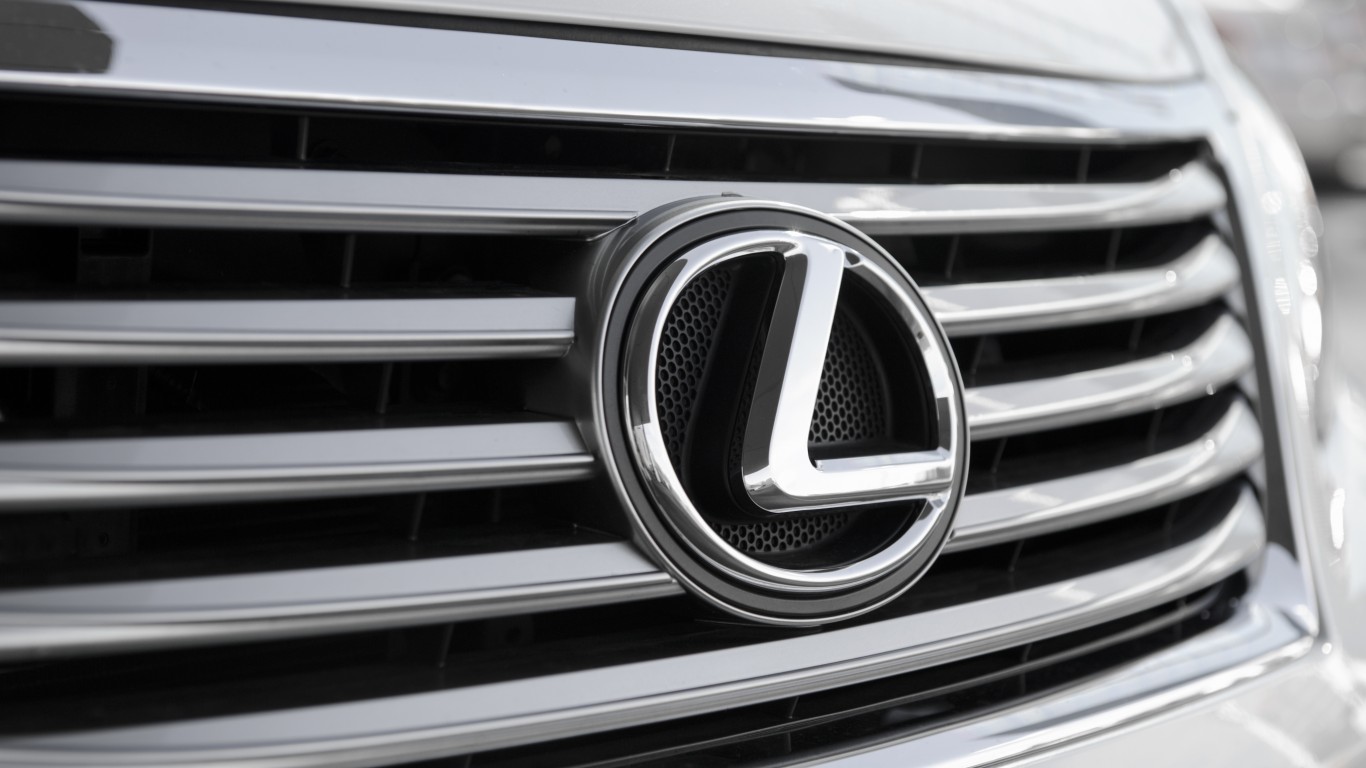
1. Lexus
> Predicted reliability score: 76-out-of-100
> Change in rank from prior survey: +2 spots
The Average American Is Losing Their Savings Every Day (Sponsor)
If you’re like many Americans and keep your money ‘safe’ in a checking or savings account, think again. The average yield on a savings account is a paltry .4% today, and inflation is much higher. Checking accounts are even worse.
Every day you don’t move to a high-yield savings account that beats inflation, you lose more and more value.
But there is good news. To win qualified customers, some accounts are paying 9-10x this national average. That’s an incredible way to keep your money safe, and get paid at the same time. Our top pick for high yield savings accounts includes other one time cash bonuses, and is FDIC insured.
Click here to see how much more you could be earning on your savings today. It takes just a few minutes and your money could be working for you.
Thank you for reading! Have some feedback for us?
Contact the 24/7 Wall St. editorial team.
 24/7 Wall St.
24/7 Wall St. 24/7 Wall St.
24/7 Wall St.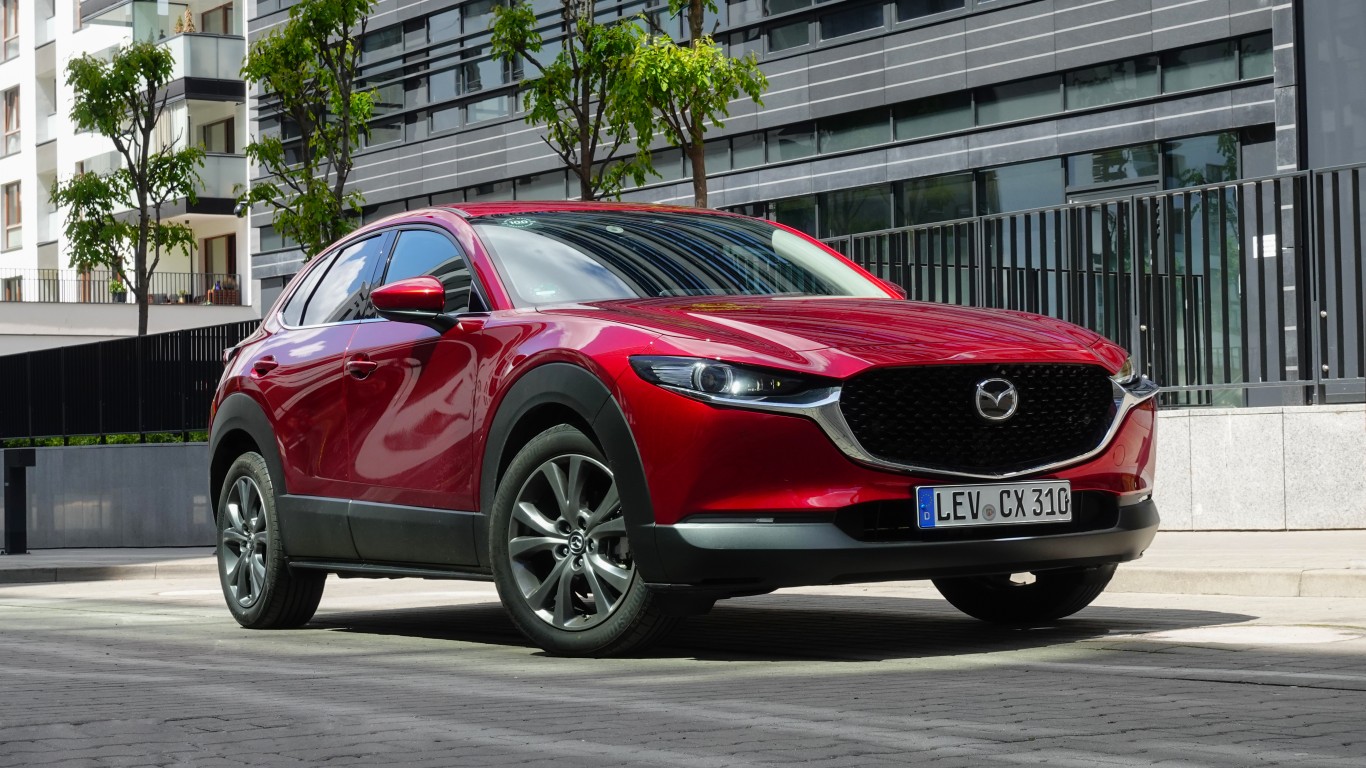 24/7 Wall St.
24/7 Wall St.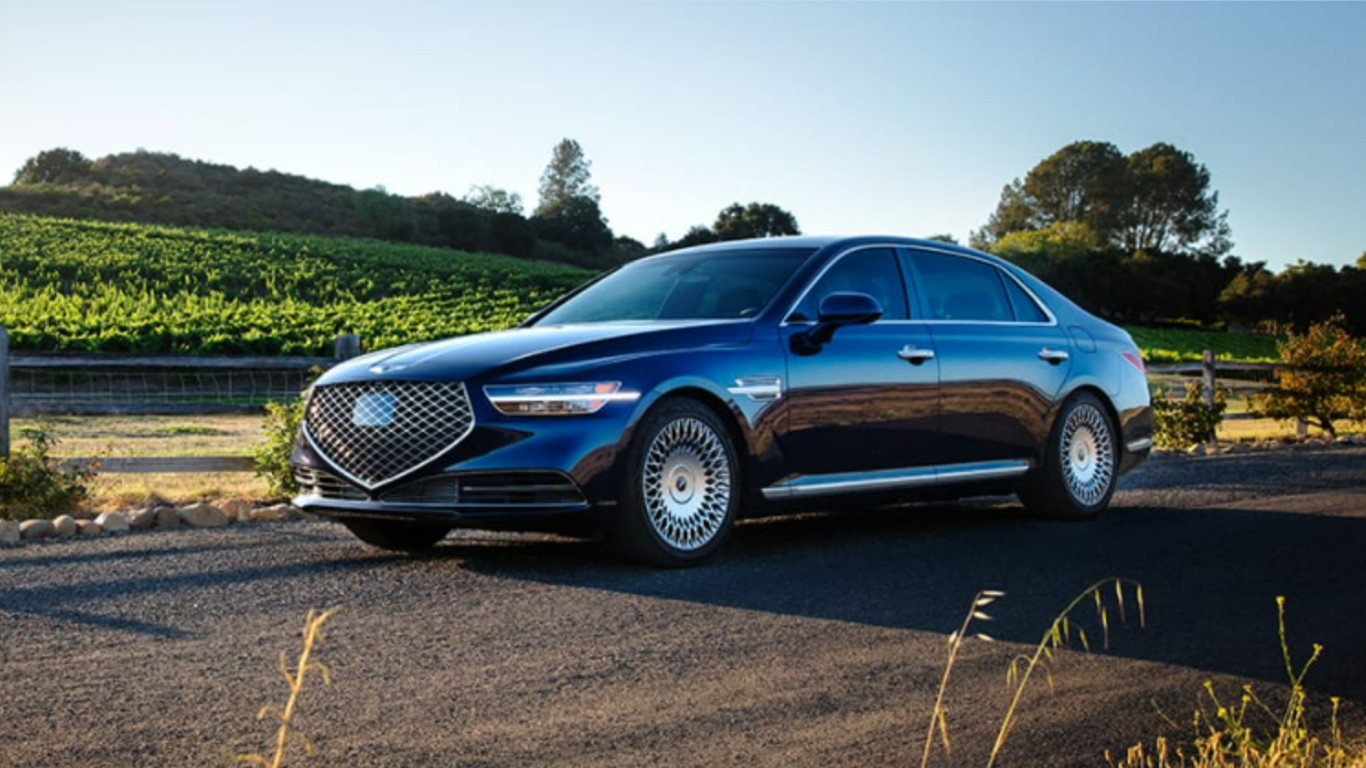 24/7 Wall St.
24/7 Wall St.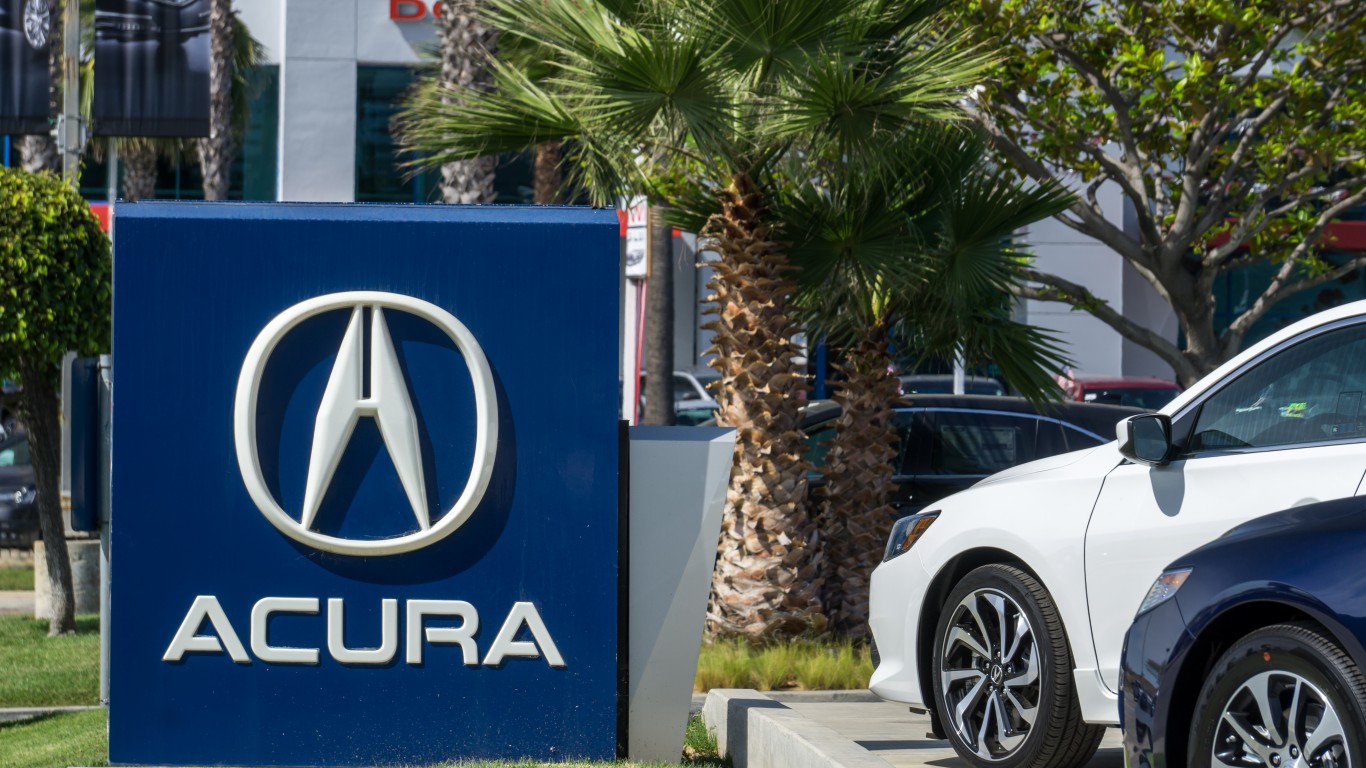 24/7 Wall St.
24/7 Wall St.
